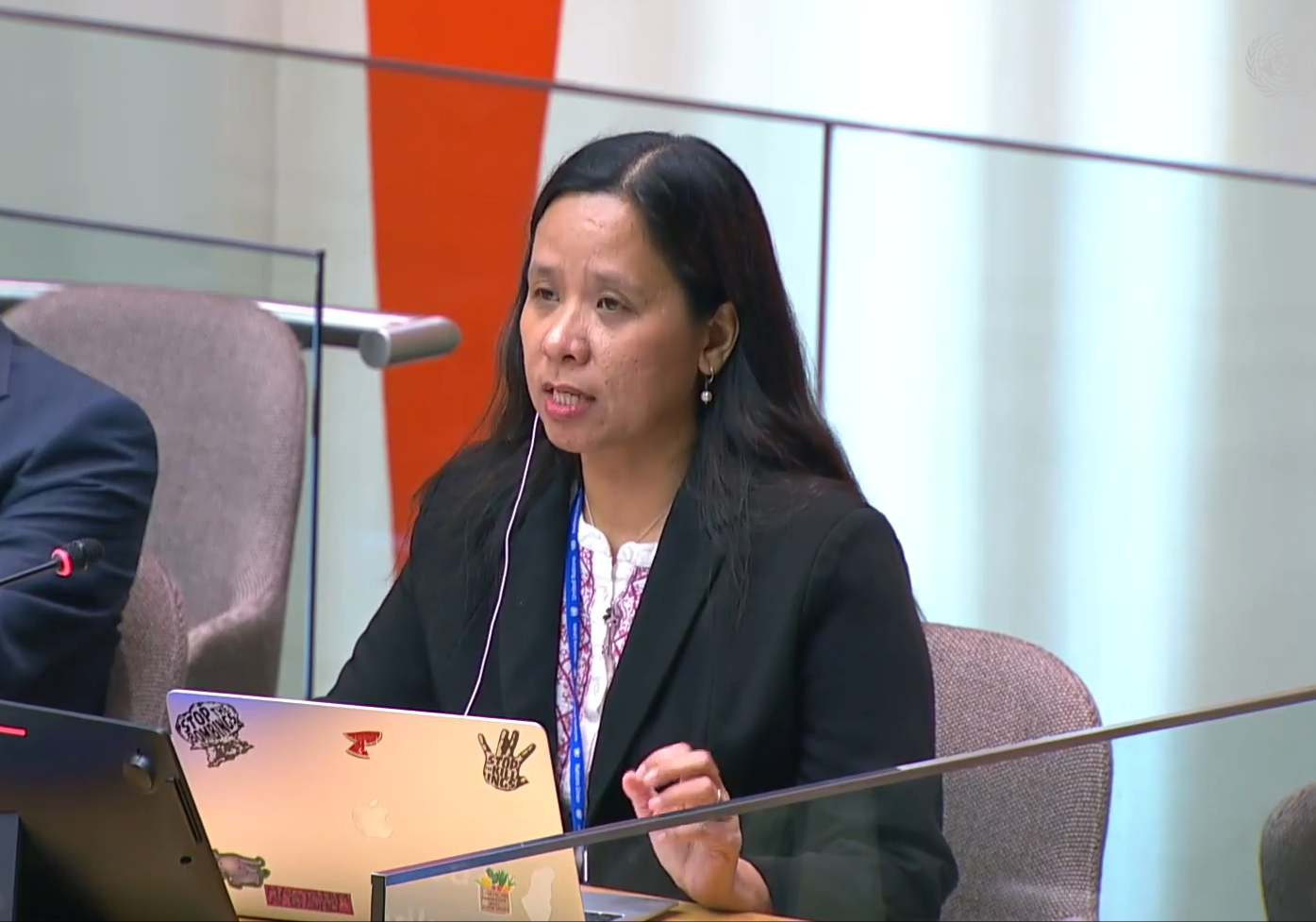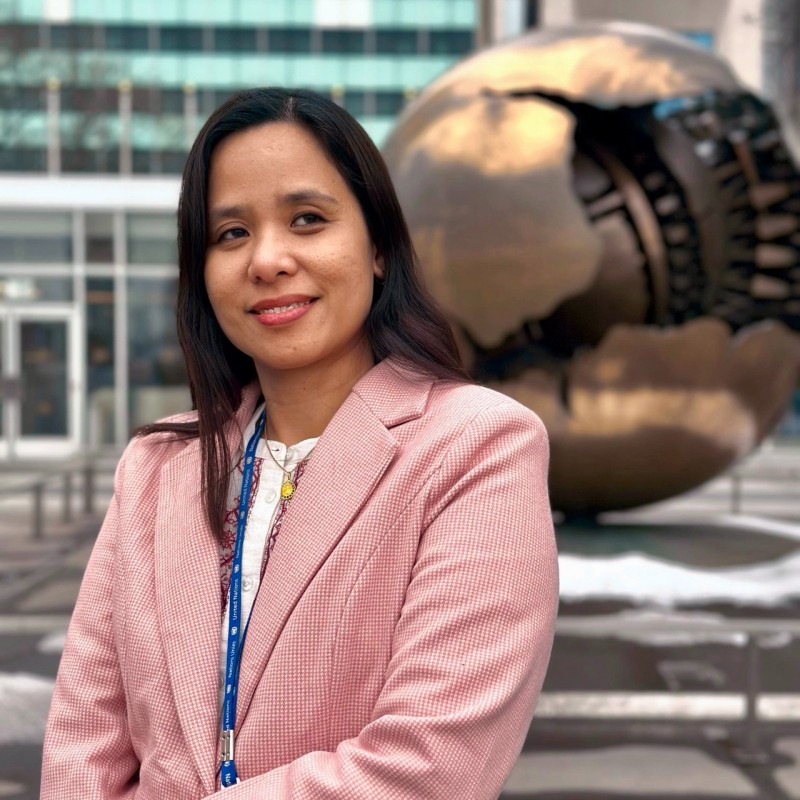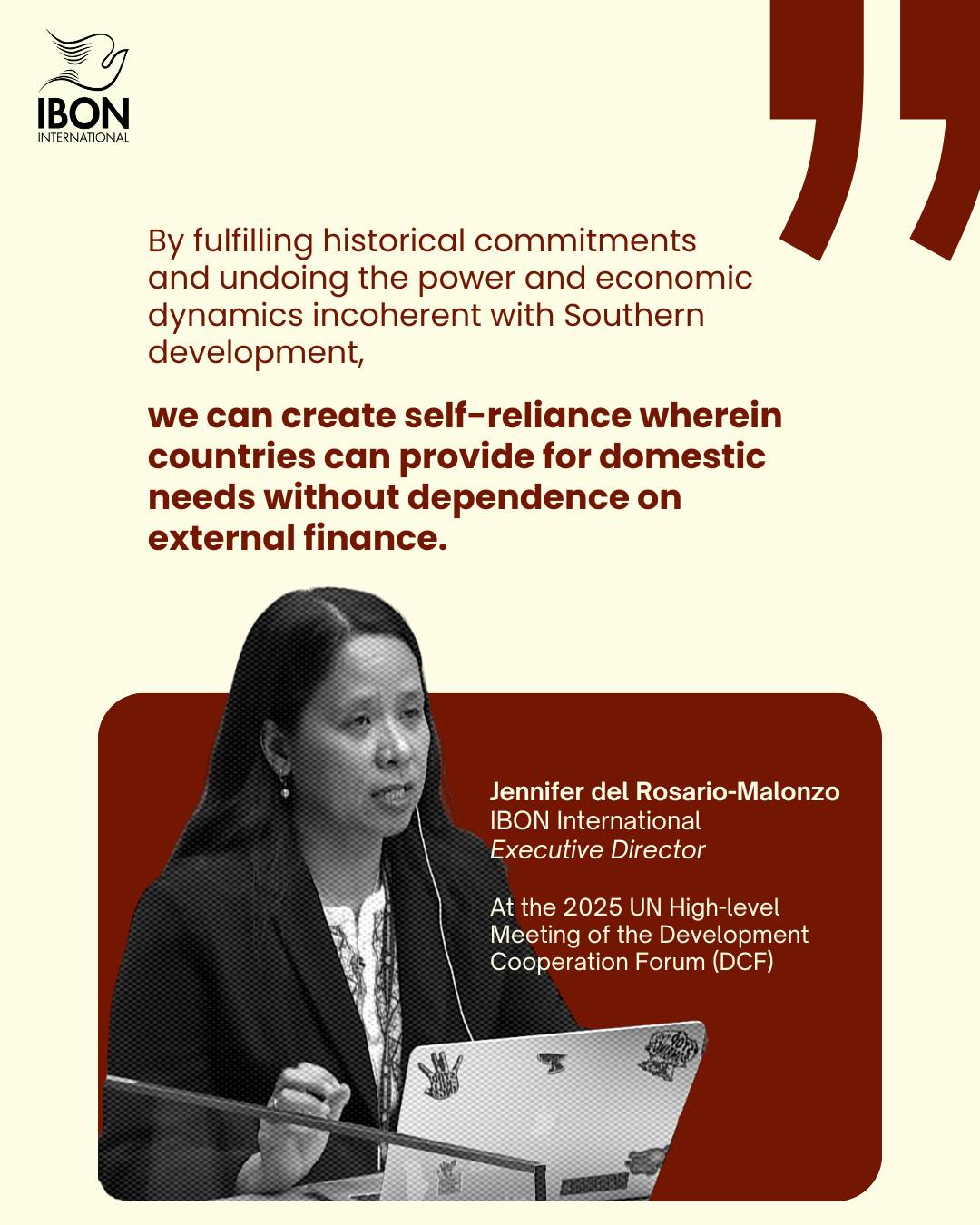
Video and speech from Jennifer at the UN High Level meeting (March 13th) above.

Jennifer del Rosario-Malonzo
(the Philippines)
Jennifer is the Executive Director of IBON International. Jennifer has working extensively on socioeconomic issues, development cooperation and sustainable development financing, using the lens of a human rights-based approach to development.
By Jennifer del Rosario-Malonza
Executive Director, IBON International
The following input was delivered for a March 13 panel titled, “Strengthening the coherence of international development cooperation to make it fit for purpose.” It has been edited for clarity.
We are currently in a very sad context for international development cooperation. This context is characterized by self-serving unilateral actions by some powerful states; an architecture driving resource outflows from the Global South to the North; and increasing conflict and impacts of the climate crisis that destroy peoples’ development prospects.
Despite and precisely because of this context, we need multilateral norms, institutions, and policies that can, as an architecture and system, support the development of the Global South.
Coherence is therefore necessary element in international development cooperation amid a world context detrimental to the development of countries in the Global South.
But it is always good to ask: Coherence for what and whose benefit?
Coherence is therefore necessary element in international development cooperation amid a world context detrimental to the development of countries in the Global South.
But it is always good to ask: Coherence for what and whose benefit?
A Call for a Global Convention on International Development Cooperation
We push for a Convention on International Development Cooperation that can create new norms born of a democratised development cooperation architecture and governance that affirms the right to development and self-determination.
Specifically, a Convention could:
1. Support coherence in agenda by setting clear parameters.
It could ringfence the core mandate of official development assistance (ODA) for poverty eradication and addressing inequalities, revitalise development effectiveness, and frame the mandate of North-South development cooperation and aid as reparations to correct historical imbalances. It could also cover South-South cooperation to affirm principles of horizontality, solidarity, mutual benefit, independence, and non-interference in ways that complement and not replace North-South cooperation.
2. Facilitate coherent operationalisation.
A Convention could transform parameters into actionable measures, such as setting concrete and binding timeframes to achieve existing ODA volume targets. It could revisit the wisdom of the ODA modernisation process to assess the alignment of what is currently counted as ODA with its supposed mandate.
3. Advance coherence by synergizing existing platforms, spaces, and processes.
At the same time, it could affirm the role of the UN and the member-states in norm-setting over international development cooperation, bringing together different actors—from the Development Assistance Committee (DAC) or the Global Partnership for Effective Development Co-operation (GPEDC) and Southern actors that operated in silos—to a common space and framework.
Linking Global, Regional, and National Coherence

This global Convention should facilitate coherence with regional cooperation and national efforts.
We should start by ensuring that global and regional norms, including international development cooperation, allow maximum policy and fiscal space for structural change—industrial and agricultural transformation—to happen at the national level. Regional cooperation and integration should be defined by gaps and opportunities that countries can advance only in cooperation with others in their region.
In a Convention on International Development Cooperation, putting the transformation of countries in the Global South as the foundation of regional coherence and integration means differentiation in North-South roles.
The Convention should offer some flexibility for Southern development actors, ensuring democratically-determined development plans, a focus on results, and accountability to the people while improving the role of Southern countries in ODA leadership and governance.
Toward Self-Reliance and a Just Global Order
In conclusion, new development cooperation norms—through a Convention—should place the supportive role of international development cooperation for Southern structural transformation by creating enabling international rules and stemming the financial drains from the global South.
In the long run, if development cooperation can successfully support structural change across countries, it opens the possibility of an “aid exit.” By fulfilling historical commitments and undoing the power and economic dynamics incoherent with Southern development, we can create self-reliance wherein countries can provide for domestic needs without dependence on external finance.
